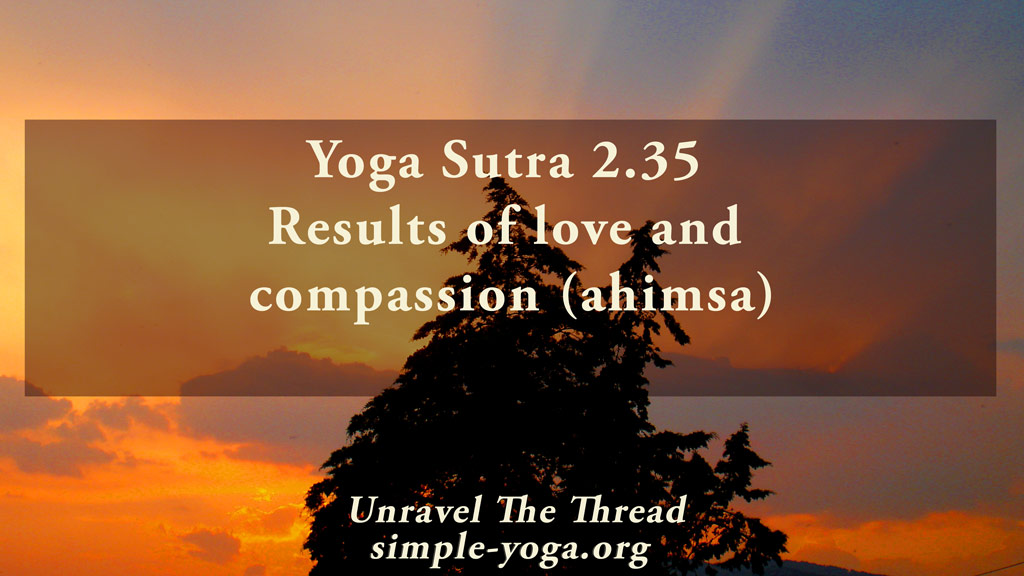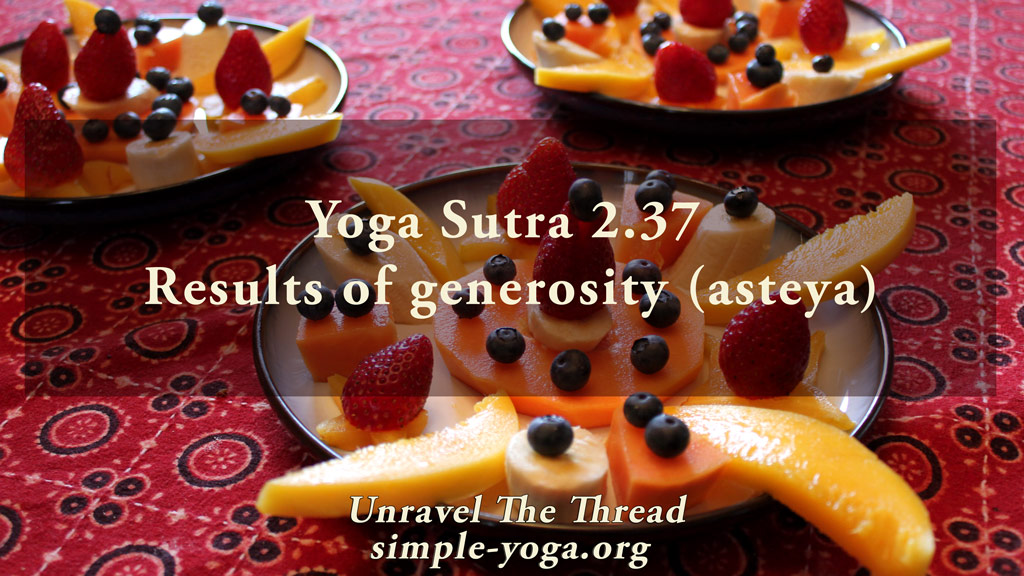
2.35 Results of love and compassion (ahimsa)
December 16, 2020
2.37 Results of fairness and generosity (asteya)
January 1, 2021
2.35 Results of love and compassion (ahimsa)
December 16, 2020
2.37 Results of fairness and generosity (asteya)
January 1, 20212.36 Results of integrity (satya)

2.36 The person established in integrity (satya), acts effectively and efficiently.
When you observe the purposeful movements of a sloth climbing up a liana to the forest canopy, you see that every movement and every action is effective and efficient. And although it may look like the movement is slow, if you are really paying attention you will see that the sloth moves up the liana at a steady pace that takes it as high as it needs to go rather quickly. Having a clear purpose is one way of bringing all your different aspects together to act with integrity. Integrity can be defined as being whole and undivided. Remembering that you are not assembled out of different separate parts but that you developed organically from one fertilized cell into a complete human being can motivate you to honor that wholeness in your life. As a result, you may be more likely to remember on a regular basis that there is nothing fundamentally wrong with you and that you are always a complete human. Indeed, your intelligence does not reside in one unique place in your body, and your emotions are not felt in only one area. All your systems interpenetrate very closely.
Integrity is also the quality of being honest and having strong moral principles. Living with integrity is feeling, thinking, acting, and interacting with wisdom, honesty, and sincerity. Can you align with integrity by connecting to your conscience? Each one of us has always been intimately connected to the world “outside” of us. This obvious fact – that you have never been in a vacuum – may be ignored when we choose to see ourselves as separate. At every moment in your life, you are in a context, and that context is part of you, even at the atomic level.
What happens if you choose to see you as you and everything around you from the microscopic to the macrocosmic?
What would happen if you chose to live based on that recognition?
How would knowing your deep truth influence your thoughts, words, and actions towards yourself?
Towards others?
Would that recognition help instill more meaning into your life, words, actions, and interactions?
If you embody this deep inner knowing, could you trust yourself?
Others?
The world?
Life?
If you expand your notion of yourself to include all that is around you, would it make sense to attend to the feedback you receive continuously from whatever surrounds you to enhance your participation in your life?
Would it be intelligent to use that feedback to guide your choices and actions?
Would this be one option to disentangle yourself from the ideas and stories generated by your likes and dislikes?
Would that make you both more effective and efficient?
As usual, one more way of exploring the meaning of this sutra is by chanting it.
You can choose to chant it in its traditional form with some of the words coming together:
सत्यप्रतिष्थायं क्रियाफलाश्रयत्वम् ॥३६॥
2.36 satyapratiṣthāyaṃ kriyāphalāśrayatvam
Another option is to chant each word in the sutra individually:
- satya
- pratiṣthāyaṃ
- kriya
- phala
- āśrayatvam
If you prefer, you may listen to the podcast:
Unravel the thread is now available as a book!
If you find Simple-Yoga.org and Unravel the thread useful, consider supporting my labor with a donation, you may also donate using PayPal or Venmo. Thank you!
